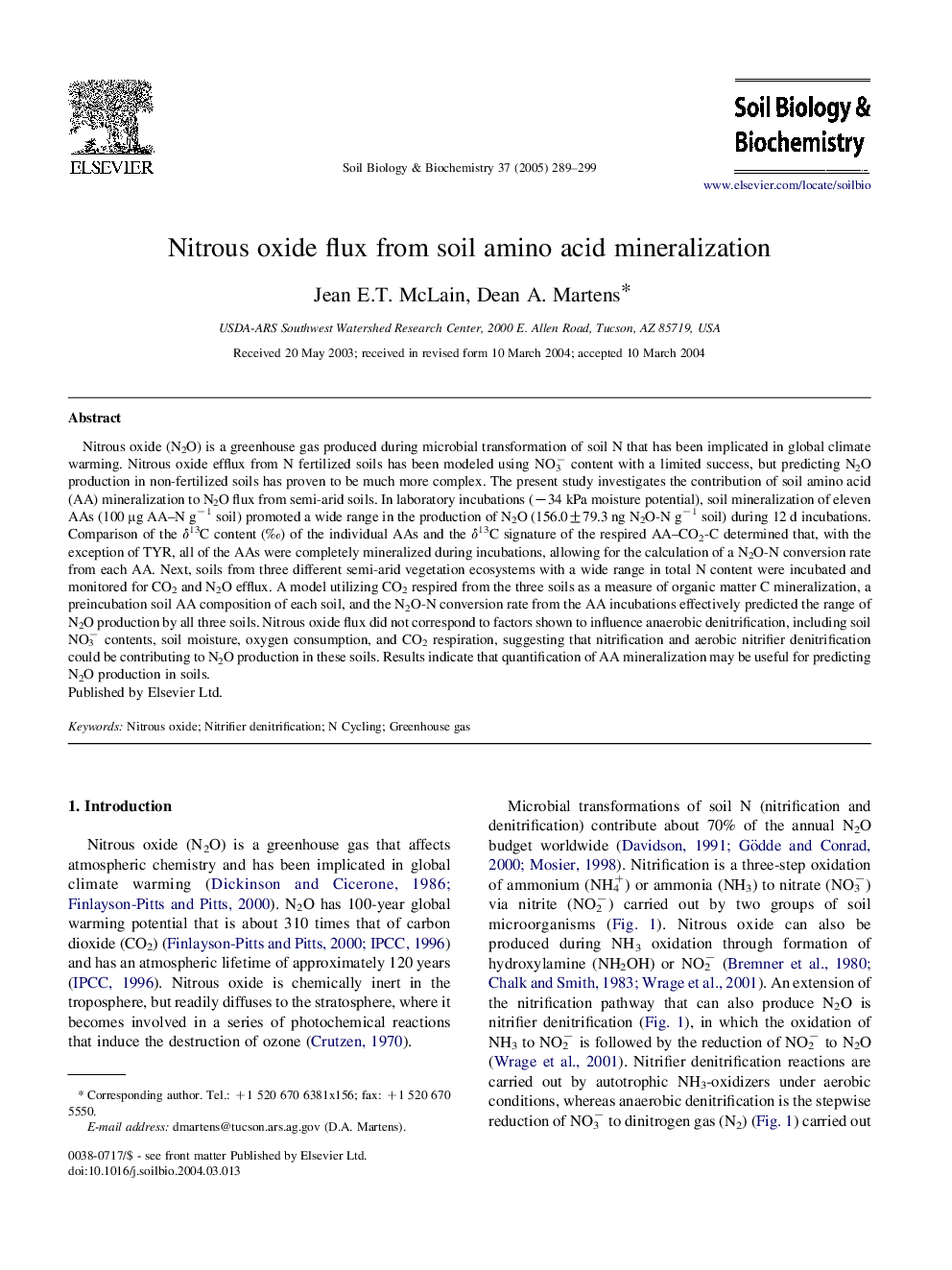| Article ID | Journal | Published Year | Pages | File Type |
|---|---|---|---|---|
| 10846336 | Soil Biology and Biochemistry | 2005 | 11 Pages |
Abstract
Nitrous oxide (N2O) is a greenhouse gas produced during microbial transformation of soil N that has been implicated in global climate warming. Nitrous oxide efflux from N fertilized soils has been modeled using NO3â content with a limited success, but predicting N2O production in non-fertilized soils has proven to be much more complex. The present study investigates the contribution of soil amino acid (AA) mineralization to N2O flux from semi-arid soils. In laboratory incubations (â34 kPa moisture potential), soil mineralization of eleven AAs (100 μg AA-N gâ1 soil) promoted a wide range in the production of N2O (156.0±79.3 ng N2O-N gâ1 soil) during 12 d incubations. Comparison of the δ13C content (â°) of the individual AAs and the δ13C signature of the respired AA-CO2-C determined that, with the exception of TYR, all of the AAs were completely mineralized during incubations, allowing for the calculation of a N2O-N conversion rate from each AA. Next, soils from three different semi-arid vegetation ecosystems with a wide range in total N content were incubated and monitored for CO2 and N2O efflux. A model utilizing CO2 respired from the three soils as a measure of organic matter C mineralization, a preincubation soil AA composition of each soil, and the N2O-N conversion rate from the AA incubations effectively predicted the range of N2O production by all three soils. Nitrous oxide flux did not correspond to factors shown to influence anaerobic denitrification, including soil NO3â contents, soil moisture, oxygen consumption, and CO2 respiration, suggesting that nitrification and aerobic nitrifier denitrification could be contributing to N2O production in these soils. Results indicate that quantification of AA mineralization may be useful for predicting N2O production in soils.
Related Topics
Life Sciences
Agricultural and Biological Sciences
Soil Science
Authors
Jean E.T. McLain, Dean A. Martens,
